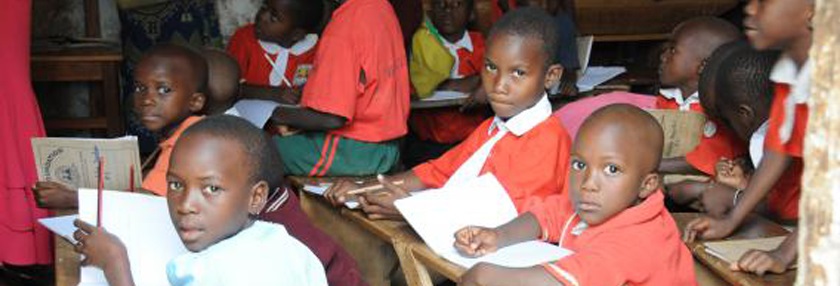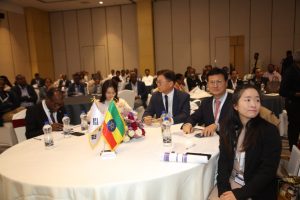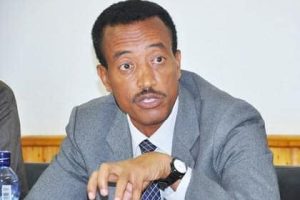
BY GIRMACHEW GASHAW
Ethiopian Diasporas can see the education and training of Ethiopians back home as a unique, attractive and lucrative investment destination. Education and training are the backbone to investment, progress and prosperity.
Therefore, it is vital to both the Diaspora Ethiopians and their country of origin to look at the sector and provide more focus to the stream. If Ethiopia is to become a major agricultural, industrial and manufacturing nation that is competitive not only to its neighbours but also to countries at the international level, millions of its citizens need to be better educated and trained in line with an international standard.
Despite the absence of precise data, there is a consensus that Ethiopia has a massive intellectual resource in its diaspora. In the United States, for instance, where 32 percent of those aged 25 or older have at least a bachelors degree, the Ethiopian diaspora is estimated to have educational qualifications that exceed the national average.
Moreover, in 2012, the United Nations reported that according to a conservative estimate, there were about 1,600 individuals of Ethiopian origin in the US and Canada alone who have a PhD; and there is ample reason to expect that this number has considerably increased since.
Ayenachew A Woldegiyorgis is a research assistant and doctoral student at the Center for International Higher Education, Boston College, United States. Although the numbers in other popular destinations for the Ethiopian diaspora such as the United Kingdom, Germany, Norway and Australia may not be as large as for the US and Canada, they likely have a similar educational profile.
Nonetheless, the contribution of the Ethiopian diaspora to areas of knowledge and higher education in Ethiopia has not met expectations or fulfilled its potential. In the past, two main factors are likely to have been responsible for this.
On the one hand, the bitter political relationship between the Ethiopian government and most members of the diaspora has prevented any engagement with Ethiopian higher education institutions or any public institutions for that matter. On the other hand, the absence of a well-articulated diaspora engagement strategy that emphasizes knowledge and technology has made the engagement of those who overcame hostile relations informal and fragmented.
The coming to power of Prime Minister Abiy Ahmed in April 2018 changed the dynamics of the relationship between the government and the diaspora. The new prime minister not only openly called for an end to the hostile relationship with an invitation to everyone to come back home, including individuals and organizations who were formerly declared terrorists, but he also travelled to several countries, met with members of the diaspora and held discussions with community representatives and organizations.
Subsequent reforms have also created more space for the Diaspora and one of the primary messages of the prime minister since taking office was a specific call to the knowledge Diaspora to join forces in building the country. The response has been overwhelmingly positive. A substantial majority of the Diaspora community have openly expressed their support for the measures taken by the new administration. Several prominent individuals in the Diaspora are also actively engaged in various ways in supporting government initiatives, including the flagship Ethiopian Diaspora Trust Fund.
The following three recent developments illustrate the new momentum in the engagement of the Ethiopian knowledge diaspora, according to Ayenachew. In December, Vision Ethiopia, a diaspora organization founded and led by prominent intellectuals based in the United States, held its seventh conference, for the first time in Addis Ababa. This is symbolic of the new spirit in the diaspora-government relationship in Ethiopia for at least two reasons.
First, the leadership of Vision Ethiopia has been among the top critics of the Ethiopian government. In past years, it was inconceivable to imagine it holding conferences in Ethiopia. Most of the organizers and presenters at the last conference have returned to Ethiopia after years in exile.
Second, as the organizers later revealed, Vision Ethiopia has received an encouraging level of support from the government, so much so that two ministers (the ministers of science and higher education and of culture and tourism) spoke at the conference.
In the past few months, many representatives of diaspora organizations and networks have visited Ethiopia and held discussions with government officials and representatives of academic institutions. Several of these organizations and networks have also signed memoranda of understanding with the Ministry of Science and Higher Education, to chart a path for the engagement of their members with Ethiopian higher education.
This development has also been matched by positive steps on the government’s side. The newly founded Ministry of Science and Higher Education has established an advisory council and representatives from the diaspora form a significant number of its members. In addition, one of the sub-groups within the advisory council is concerned with issues of diaspora engagement in science and higher education.
Institute for Peace and Security Studies (IPSS) of Addis Ababa University (AAU) dealt with Ethiopian Diasporas, Peace Corps members residing in the United States of America.
The team is comprised of nine members including scholars and celebrities, representing more than 30 civic organizations. They moved home to support those in need and to engage in dialogues focused on peace and security issues of the country.
Yonas Adaye (PhD), Director of IPSS, briefed the team about the purpose of establishing the Institute and its overall national, continental and global activities.
According to the Director, IPSS was established in 2007 to search for solutions for conflicts that happen following some of sort national agenda like that of the 2005 national election results.
As some similar phenomena like the Ethiopian election have arisen in Kenya and Zimbabwe, the institution was established at the senate level, believing that sustainable scientific research was needed to bring about a lasting solution in Africa and beyond, Yonas added.
IPSS was established, as stated by the Director, based on the premise that we must work for peace and security with four basic pillars; they are Peace Education, Peace Research, Community Service and Policy Discussion.
While Peace Education focuses on applying indigenous knowledge, Peace Research seeks solutions for conflicts through intensive studies, Social Service aims at applying Peace Education and Peace Research practicable in the community and the Policy Discussion targets on foreign diplomacy and as with the Pan-African agenda, Yonas clarified.
The Director briefed the team that IPSS currently runs three masters and two PhD programs focusing on regional issues of peace and security, training executive bodies and overall global studies.
Yonas clarified based on the Peace Corps members’ request that IPSS has seen points how to practice the Gamo Fathers’ conflict resolution culture in other areas, the Somali region fast peace restoration, about the plight of our people in the North, about the gallant army sacrificing its life for the peace of our country, etc.
The members stated their excitement for understanding IPSS has been doing a lot on overall peace and security issues and are motivated to work together as they are very concerned to help their motherland, Ethiopia and its people as a whole.
Yonas finally said, “It is commendable that members of the Ethiopian Diaspora living abroad are making a greater contribution to our country than any other government-trained diplomat. Your efforts to build peace and stability in the country should be encouraged and we want you to continue to strengthen.”
THE ETHIOPIAN HERALD AUGUST 24/ 2021





